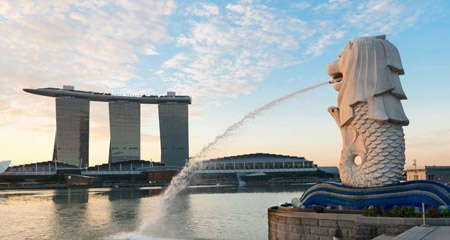Viewpoints
2019-11-26
For the change of company name, a name availability search certificate shall be obtained from the competent administration bureau for industry and commerce first. And the shareholders or board of directors shall make a resolution on the issue of change of company name. After that an application form for registration of changes shall be filled and submitted to the administration bureau for industry and commerce together with the original resolution, original name availability search certificate, original true copy and duplicate of the business license of the company.
2019-11-26
China WFOE Maintenance and Compliance Guide (1) – China’s Statutory Capital Verification Requirement
Introduction According to the Verification of Capital Contributions, after the shareholder (investor) of the a Wholly Foreign Owned Enterprise contributes and pays the registered capital into the WFOEs Foreign Currency Capital Account, it should arrange to engage a local certified public accounting firm to perform an audit so as to verify that the capital is contributed and paid in accordance with requirements of the China Company Law and Articles of Association. The capital verification report issued thereafter is deemed as the legal proof of capital contribution. Immediately after the capital verification is done, the WFOE could then convert the capital to RMB and use it for daily operation. Capital Verification Procedures and Expected Time Overall, the whole process takes about 3 to 4 weeks. (1) Bank confirmation: Normally 3-5 working days, depending on different banks (2) Local State Administration of Foreign Exchange (SAFE) confirmation: Normally 5 working days, depending on […]
2019-11-26
Items VAT Small-scale Taxpayers VAT General Taxpayer 1 Application Criteria · Company shall be ratified as VAT small-scale taxpayer when registration with no need for separate application; · The company’s annual taxable sales shall not exceed RMB5 million. · The company shall apply for the qualification of VAT general taxpayer when its annual taxable sales reach or exceed RMB 5 million, if not apply, it shall be compulsorily ratified as VAT general taxpayer; · Newly registered company or company with annual taxable sales not exceeding RMB5 million can apply for the qualification of VAT general taxpayer if it has fixed operation place and can provide legal and valid vouchers and accurate tax filing data. 2 Tax and Levy Rate The applicable levy rate is 3%. The applicable tax rate is divided into four levels, 16%, 10%, 6% and 0% respectively. 3 Tax Filing Method VAT and its surcharges shall be […]
2019-11-26
(1) Duty payers The payers of Customs Duties include consignees who import goods permitted by China and consignors who export goods permitted by China, the former shall pay import duties and the latter shall pay export duties. (2) Tariff rates The tariff rates include import duty rates and export duty rates. The tariff rates for imports fall into two categories; general tariff rates and preferential tariff rates. The general tariff rates apply to the imports originating in the countries with which the People’s Republic of China has not concluded most-favoured-nation trade agreements; the preferential tariff rates apply to imports originating in the countries with which the People’s Republic of China has concluded most-favoured-nation trade agreements. In 1999, there are 6, 940 tariff numbers for imported goods in the Classifications. The general tariff rates for importation range from 0%, 8% to 270% with over 20 different rates. The preferential tariff […]
2019-11-26
9.1. Application Time Limits and Requirements 9.1.1. Where an enterprise with foreign investment or a foreign enterprise with an establishment or site in China for production or business operations, moves to a new site, merges with another enterprise, breaks up, winds up or makes a change in any of the main entries of registration, it shall present the relevant documentation to, and go through registration procedures or change or cancellation of its registration with, the local taxation authorities, after the relevant event is registered or a change or cancellation in registration has been made with the Industrial and Commercial Administration Department. 9.1.2. Income Tax on enterprises and local Income Tax shall be calculated on an annual basis and paid in advance in quarterly installments. Such payments shall be made within 15 days from the end of each quarter and the final settlement shall be made within 5 months from the […]
2019-11-26
8.1 Basic Regulations 8.1.1 The State shall, in accordance with its industrial policies, guide the orientation of foreign investment and encourage the establishment of enterprises with foreign investment which adopt advanced technology and equipment and export all or the greater part of their production. (ZHU XI LING [45] 1991.4.9) 8.1.2 Foreign investment enterprises encouraged by the State which request preferential treatments in relation to enterprise Income Tax shall be treated in accordance with the relevant laws and administrative regulations promulgated by the State. (GUO WU YUAN LING [85] 1991.6.30) 8.2 Lowering Tax Levy Tax Rates 8.2.1 The Income Tax on enterprises with foreign investment established in special economic zones, foreign enterprises which have establishments or sites in special economic zones engaged in production or business operations, and enterprises with foreign investment of a production nature in economic and technological development zones shall be levied at the reduced rate of 15%. […]
2019-11-26
7.1 Basic Regulations 7.1.1 Any foreign enterprise which has no establishment or site in China but derives profits, interest, rental, royalties or other income from sources in China, or which, though it has an establishment or site in China and derives such income which however is not effectively connected with such e-statement or site, shall pay an Income Tax of 20% on such income. (ZHU XI LING [45] 1991.4.9) 7.1.2 Profit, interest, rentals, royalties or other income′ referred to in Paragraph 1, Article 19 of the Tax Law shall be assessed on the full amount of taxable income, unless otherwise provided by the State. (GUO WU YUAN LING [85] 1991.6.30) 7.1.3 Income obtained by the foreign enterprise from jointly issuing movies and TV programs in China with Chinese film producers, is income from copyright from sources inside China collected by the foreign enterprise who has no establishment or site in […]
2019-11-26
6.1 Basic Regulations 6.1.1 Enterprise Income Tax of enterprises with foreign investment and the Income Tax payable by foreign enterprises on the income of their organizations or sites in China for production or business purposes, shall be calculated on taxable income at a rate of 30%; local Income Tax shall be calculated on taxable income at a rate of 3%. 6.1.2 Enterprises with foreign investment may, when filing a consolidated Income Tax return, deduct from the amount of tax payable the foreign Income Tax already paid abroad in respect of income derived from sources outside China. The amount deducted, however, may not exceed the amount of Income Tax otherwise payable under this Law with respect to income derived from sources outside China. (ZHU XI LING [45] 1991.4.9) 6.1.3 Income Tax already paid abroad in Article 12 of the Tax Law refers to the Income Tax actually paid outside China, by […]
2019-11-26
5.1 In business transactions between an enterprise with foreign investment or the establishments or sites set up in China by a foreign enterprise for production or business operations, and its associated enterprise, the payment or receipt of charges or fees shall be made in the same way as the payment or receipt of charges or fees in business transactions between independent enterprises. Where the payment or receipt of charges or fees is not made in the same way as business transactions between independent enterprises and results in a reduction of taxable income, the taxation authorities have the right to make reasonable adjustments. (ZHU XI LING [45] 1991.4.9) 5.2 Associated enterprises refer to companies, enterprises and other economic organizations that have any of the following relationships with other enterprises: A. relationships of existing direct or indirect ownership of, or control over, such matters as finance, business operations or purchases and sales; […]
2019-11-01
4.1 Fixed Assets and their Depreciation 4.1.1 Fixed assets of enterprises refer to houses, buildings and structures, machinery, mechanical apparatus, means of transport and other such equipment, appliances and tools related to production and business operations and which have a useful life of one year or more. Items which are used for production and business operations but do not have the nature of major equipment, have a unit value of 2000 yuan or less, or have a useful life of 2 years or less, may be itemized as expenses according to actual consumption. (GUO WU YUAN LING [85] 1991.6.30) 4.1.2 The valuation of fixed assets shall be based on original cost. The original cost of purchased fixed assets is the purchase price plus transportation expenses, installation expenses and other related expenses incurred prior to the use of the assets. The original cost of fixed assets manufactured or constructed by […]







